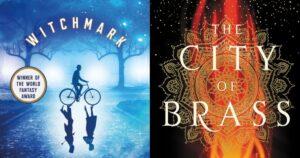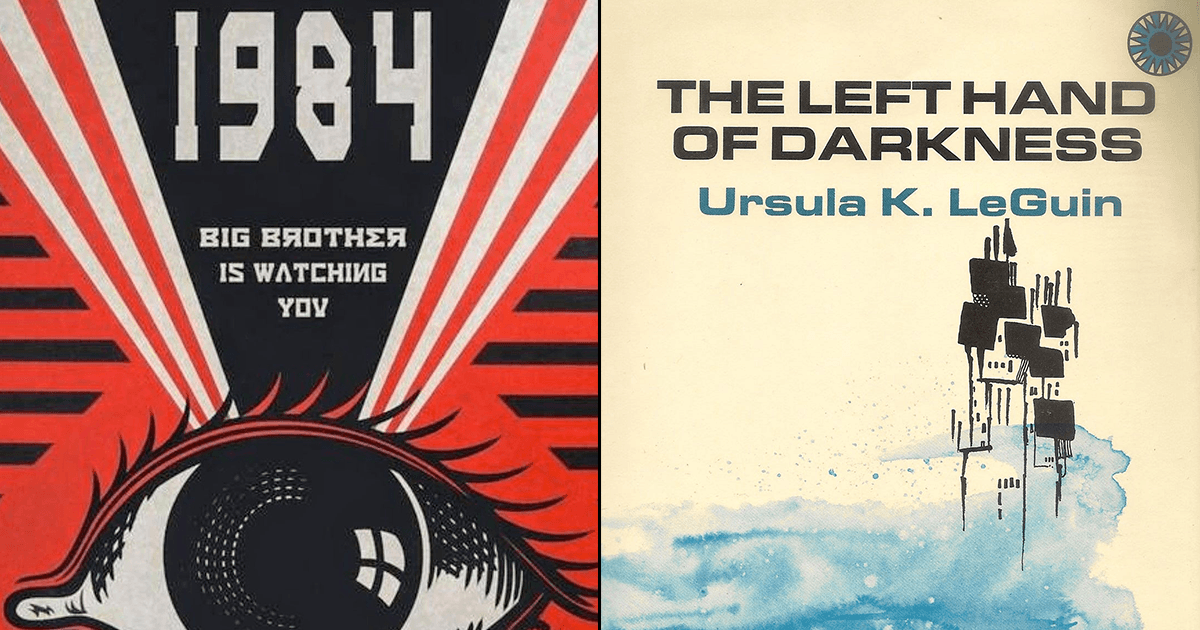As Ronald Kelts so eloquently put it: he’s not American, doesn’t write in English, and not a single vampire or wizard appears in his oeuvre. So what makes Haruki Murakami such a worldwide phenomenon?
How is it that, at a time when readership stats are dipping and paperback sales are on the decline, the Japanese writer is such a sensation the world over?
What is it about Haruki Murakami’s writing that speaks to seemingly anyone who reads it?

For starters, there is a simplicity with which he dissects the complexities of life. His protagonists are not the Hollywood heroes, the poster boys; his characters are as ordinary as you and I. People with dreams and regrets, flaws and fears. Their thoughts and insecurities resonate with us and that’s why we find it so easy to identify with them and, by that extension, his writing.
In other words, his writing is a projection of what is extraordinary about the lives of ordinary people. He delves deep into everyday life and brings out the mundane details in a manner that makes you relate.
His characters are often people you feel you are like and not the people you wish you were like, as is the case with most works of fiction.
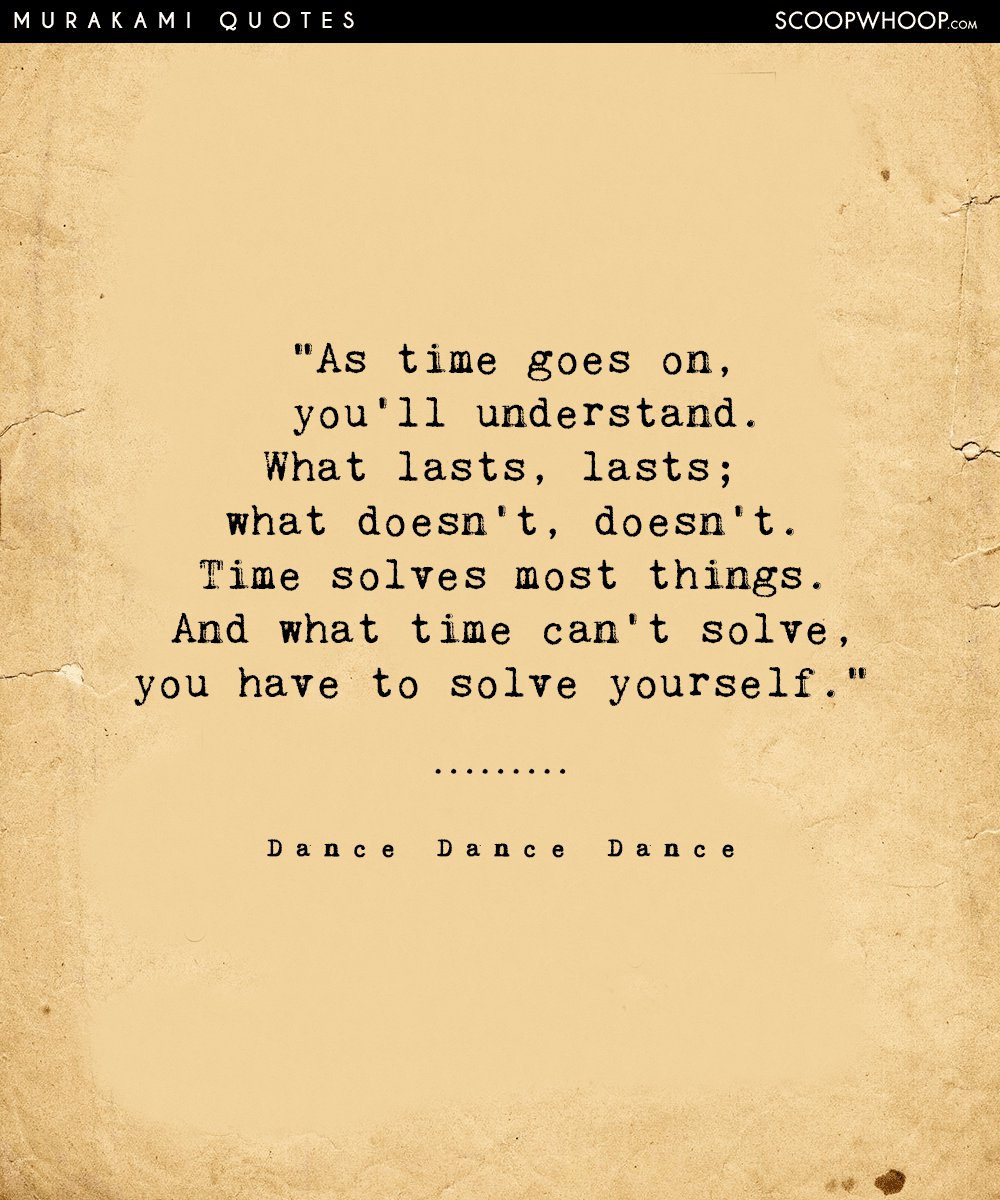
Topics like friendship, love, sex, alienation and death are recurring themes in his narratives. Most of his characters exude a sense of loss and loneliness. There is also the feeling of ennui, the purposelessness of everyday life.
There are many instances where you come across a sentence, a paragraph or an entire chapter which feels like it’s straight out of your life. And it’s reassuring to know that others too are dealing with the same insecurities. It helps us make peace with our inner demons.
And because of that, the reader feels a certain kinship with the writer. A connection, a sense of brotherhood. You relate to his writing. You feel as though he understands.
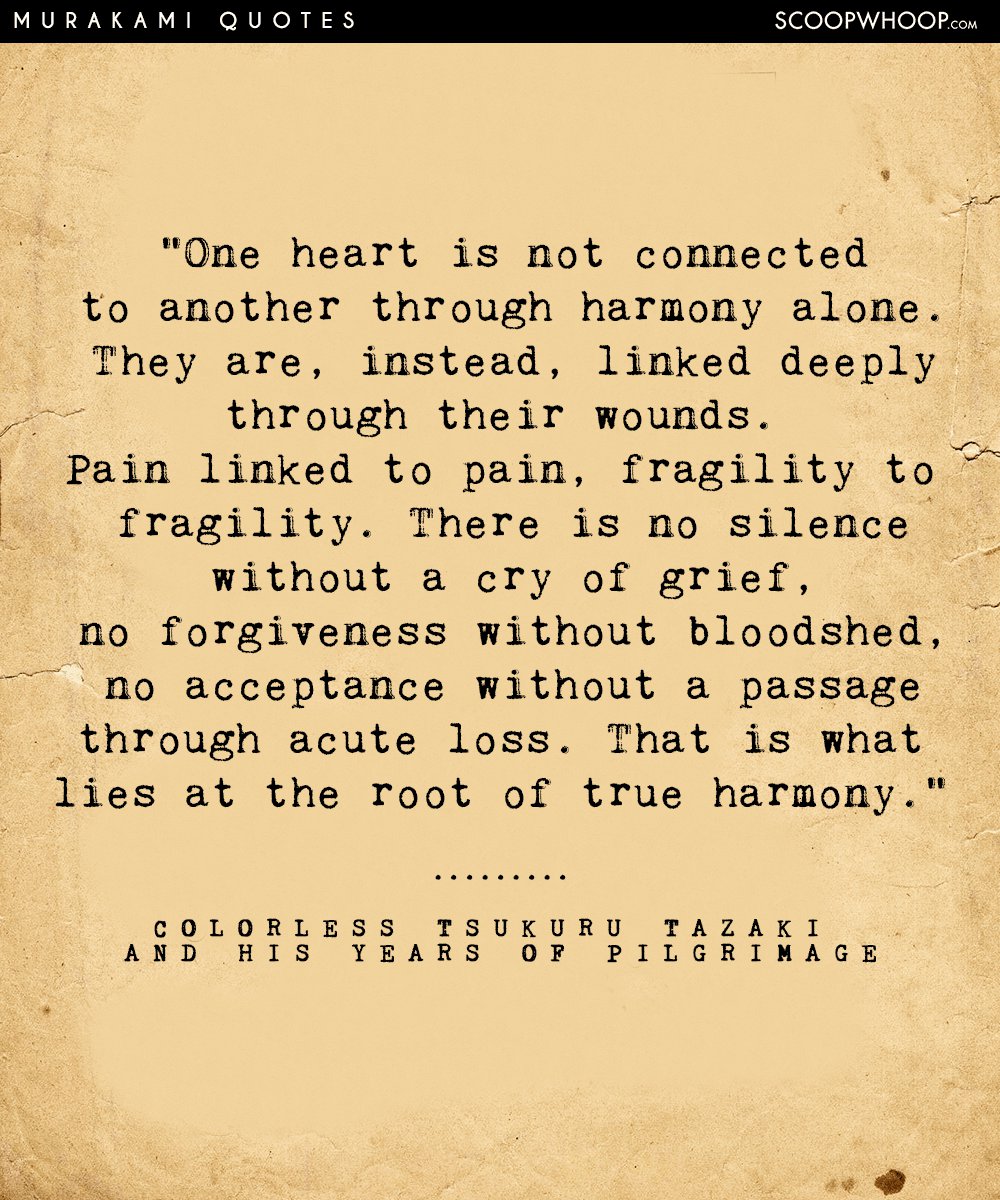
Each story seems to play out in the minds of his characters as much as it unravels in their surroundings.
Murakami’s genius lies in how effortlessly he explores both worlds (the one in our heads and the one around us) and how effortlessly he shifts between them.
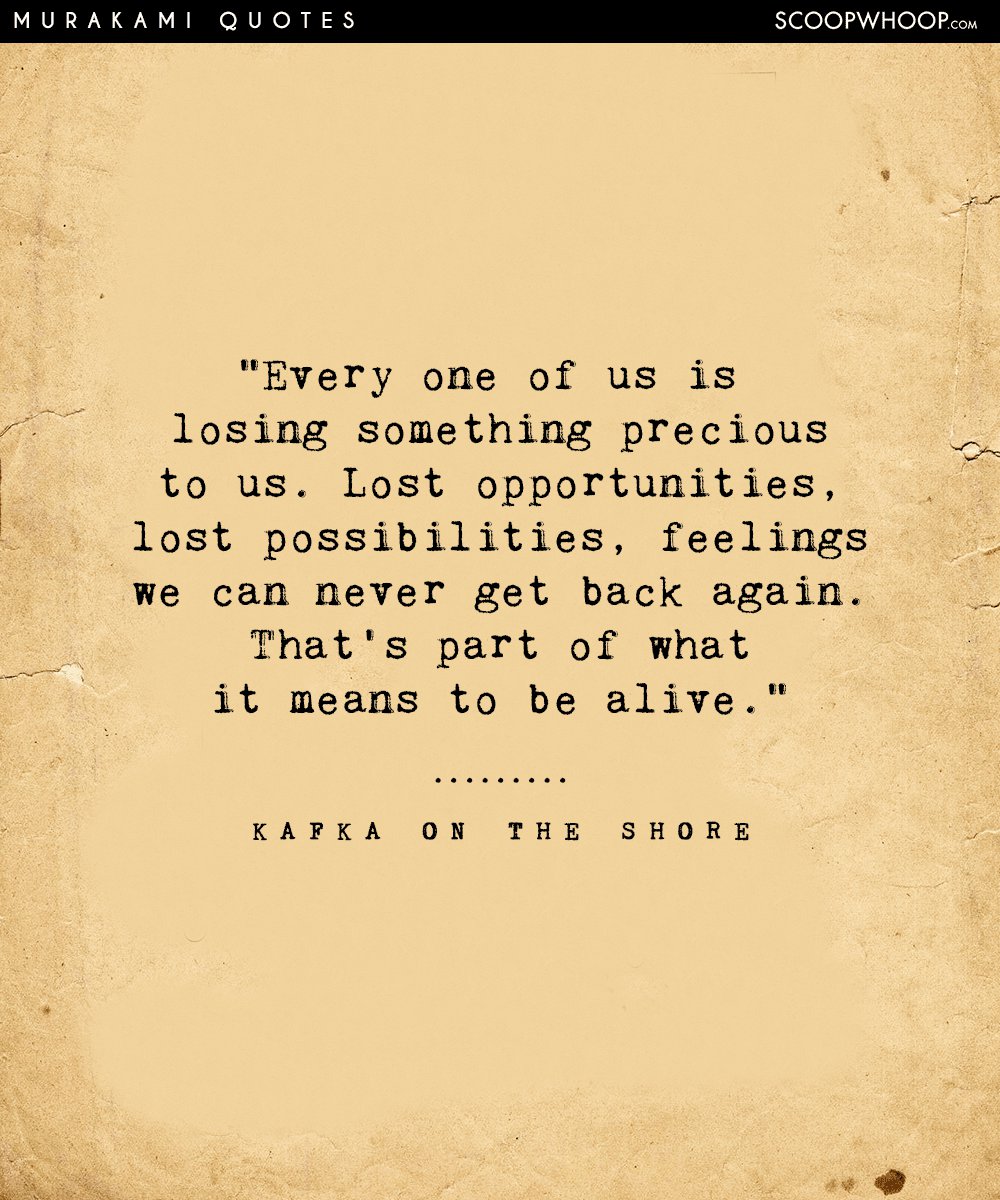
Needless to say, there’s a lot of wisdom in his words. But what’s worth noting is the seamlessness with which he blends philosophy into his dialogues. Simple questions are posed by his characters and they elicit equally straight-forward answers, but with deep meaning. They make us ponder over the deeper wisdom that is hidden in those lines.
You might pace through a chapter or two and then hit upon a line that makes you look up and reflect on something. And as you try to make sense of what you read, you feel a deeper understanding. You somehow relate it to your own life and you feel like you’ve found answers to questions you’ve been asking yourself all along. Sometimes, it’s a realisation of what questions you need to be asking yourself.
Moreover, society and life are always weighing us down. We are often caught up in what is happening around us, about the forces beyond our control, and it is our inability to cope that leaves us feeling helpless and small. But through his everyday characters, Murakami makes us realize that our greatest strength lies in our originality, our uniqueness. We are who we are because of everything that has happened to us and everything that continues to happen around us. And this realization helps us come to terms with our lives.
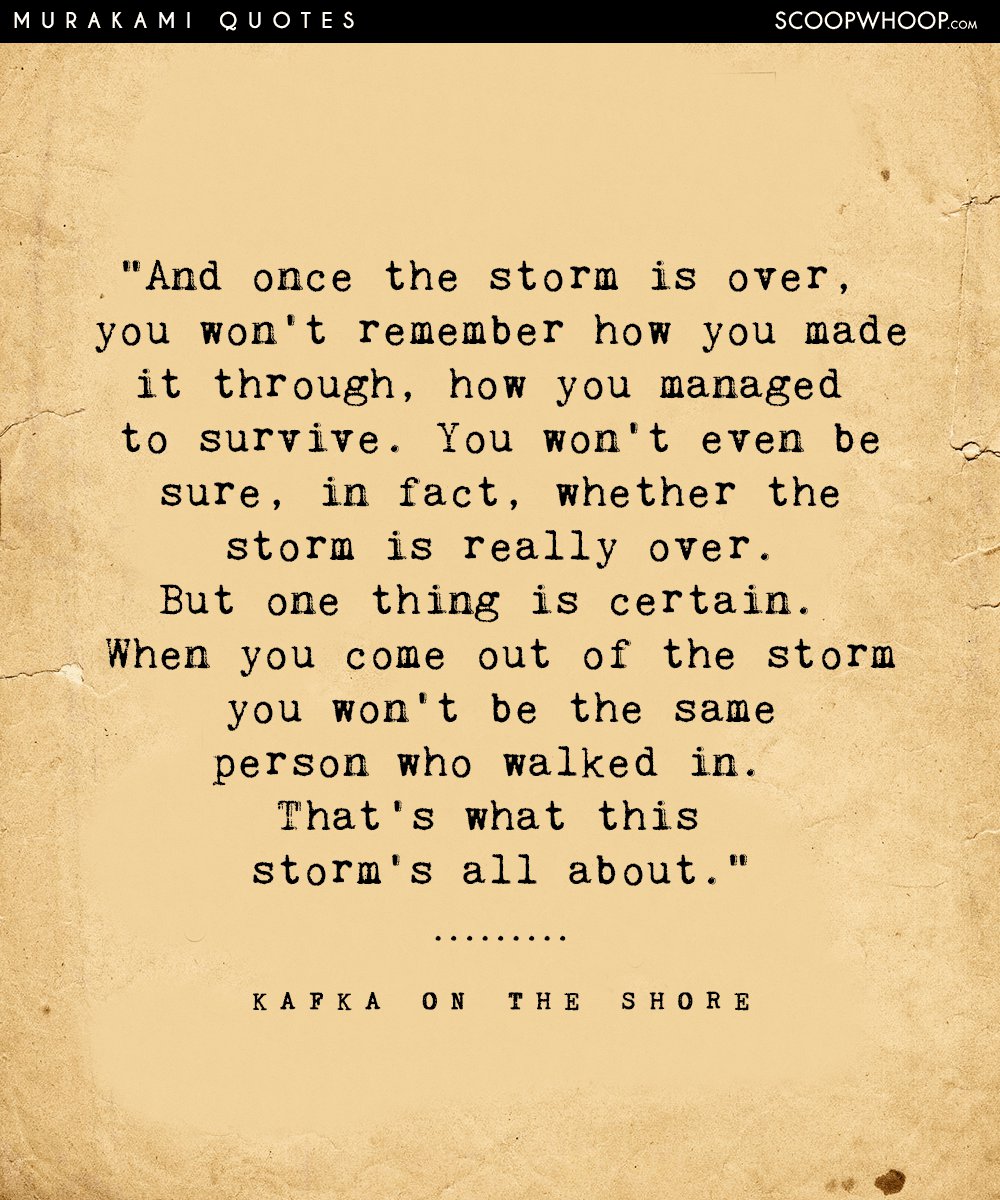
Another recurring pattern in his books is that most of them don’t have a concrete ending. You’re engrossed in the story until you reach the last page and it ends without a satisfactory conclusion.
The inconclusive endings are frustrating. But then again, isn’t that what life feels like? An endless search for meaning and purpose with no conclusive answer?
He makes us wonder and ask ourselves questions, sometimes leaving us more confused than when he found us. But the ambiguity with which each book ends makes us use our imagination to draw our own conclusions.
And because of this, each person interprets Murakami differently and that’s part of the secret to his success.
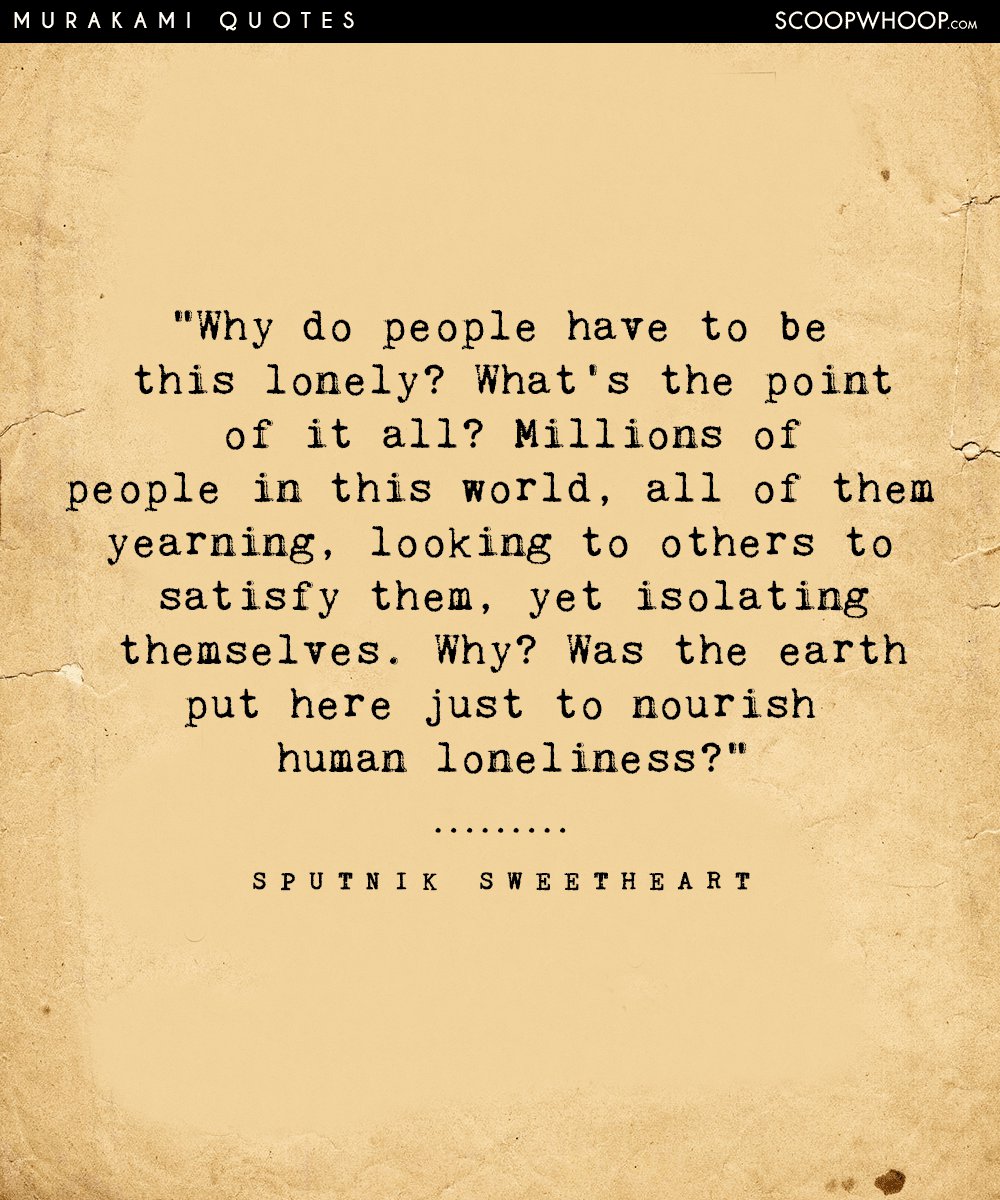
Our understanding of the things we perceive has a lot to do with our level of maturity. This holds true for most things we encounter but it is particularly true when it comes to Murakami’s writings.
There are things you understand and take away when you read any of his works at any stage in life. But if you were to go back to it in a few years’ time, whatever personal experiences you’ve had in that period will change your understanding of his work when you read it again.





